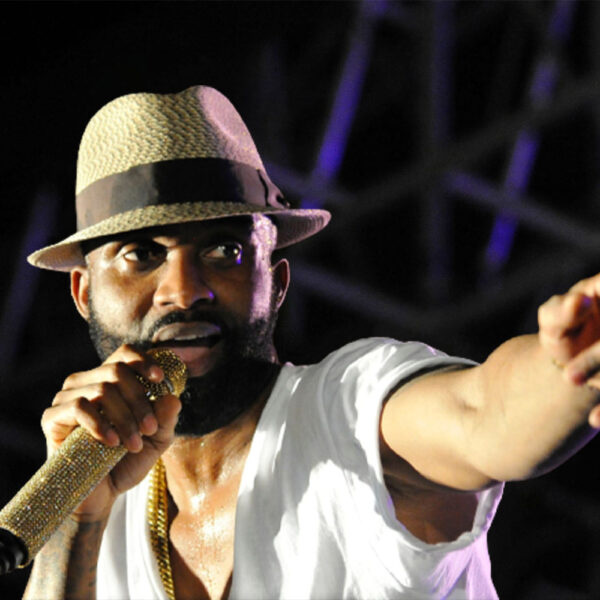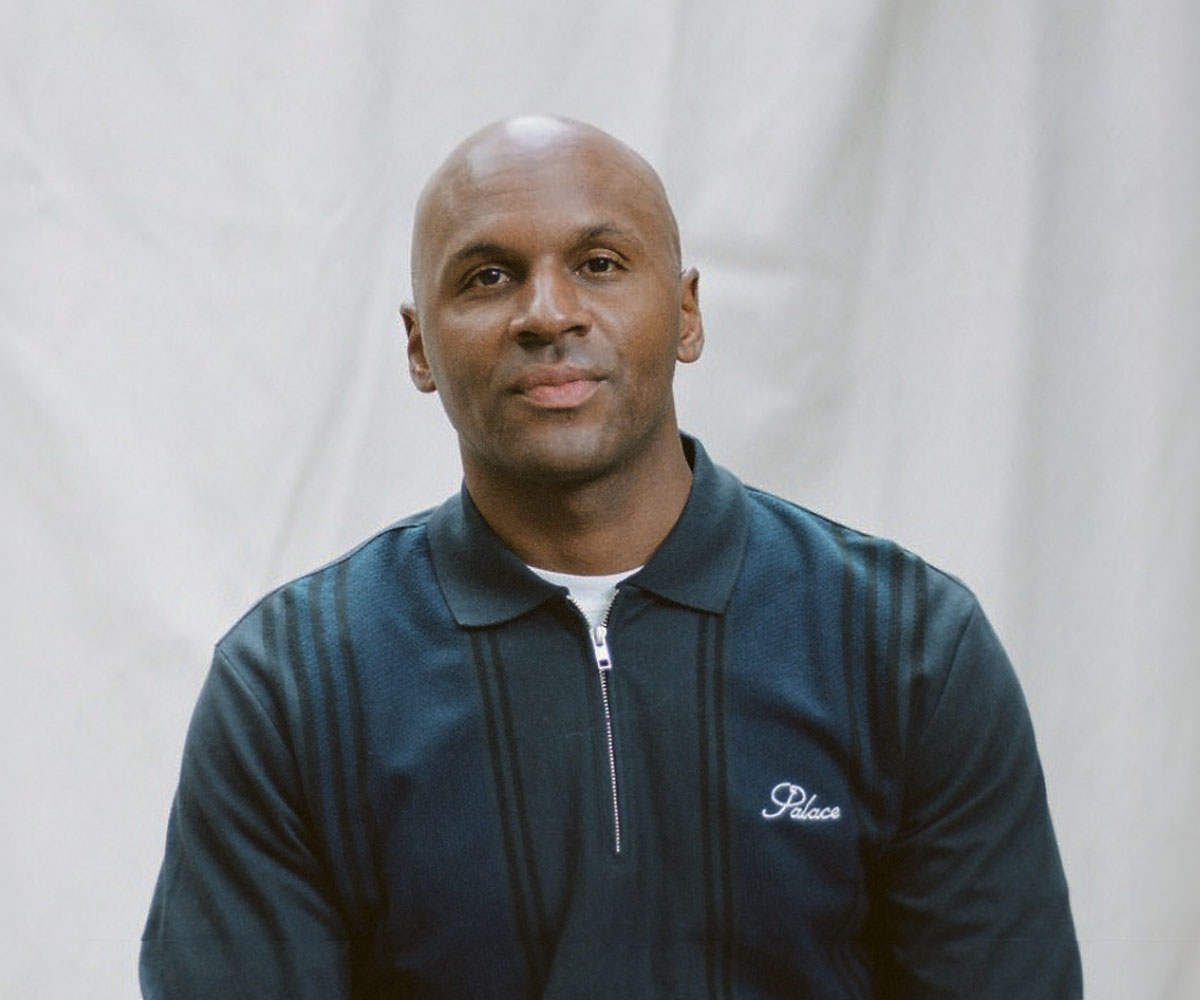
-
Amidst political unrest, Rumba, a genre of music known for its danceability, has united Congo for nearly a century.
-
Since the early 2000’s, Fally Ipupa has kept Rumba at the forefront of the music scene and culture as a whole.
-
Many Rumba artists fled the country during its civil wars, thus cementing Ipupa’s importance as a crucial figure in keeping the musical genre thriving.
-
Ipupa’s dreams of winning a Grammy aren’t far off, as he sells out arenas in Africa and continues to gain attention from Western media.
Abidjan, Cote D’Ivoire — “The foremost ambassador of the Congolese people is their traditional music, and that’s somehow our identity,” says Jean Pierre Muyumba, a researcher at the faculty of social, political, and administrative sciences of the University of Lubumbashi.
The Congolese Rumba — the genre Myumba refers to — originated in the Congo basin, notably in the now Democratic Republic of Congo and the Congo Republic, in the 1940s.
Unlike most African traditional tunes, Rumba is not affiliated with any ethnic group. Mainly composed and delivered in the Lingala language – the most popular dialect in the region – Rumba cuts across ethnic and religious boundaries in the vast DR Congo of more than 100 million people spread across some 2.3 million square kilometers of land mass.
Rumba is to the Congolese what Kung Fu Kuoshu is to the Chinese!
Throughout the years, legions of colorful musicians, song writers, interpreters and raconteurs preserved the Congolese Rumba, which was added to the UNESCO list of intangible cultural heritage in December 2021. And one of the most prominent custodians of this hallowed music currently is Fally Ipupa of DR Congo.
The 45-year-old Kinshasa-born singer, dancer, songwriter, and record producer is not the only artist whose melodies and compositions are supplanting the works of the previous generation of musicians. However, he is widely seen as one of the leading voices of the Congolese Rumba in this day and age.
“Due to the great rhythms and melodies we have consumed in the past, the Congolese people have grown to be very selective in their taste in music. Almost every Congolese can dance or sing to some extent, so we know what or who is good when we see them,” says former Kinshasa-based radio presenter, George ‘KG’ Akolo.
“Ipupa, over the past few years, has been able to convince almost everyone that he’s got the talent and charisma to be the torchbearer of the Rumba music even beyond our shores. The reason behind his success is that he took his time to hone his skills under a maestro in the business, unlike many youngsters of today,” he says.
Coming to the fore
Born Fally Ipupa N’simba, Ipupa spent seven years (1999-2006) working as a member of Koffi Olomidé’s music band known as Quartier Latin International. Olomidé, the late Papa Wemba, and the group Wenge Musica, amongst a few others, were the dominant forces of the genre in the mid-1990s and early 2000s. Fondly referred to as the “intellectual of Rumba” following his university studies in France, Olomide kicked off his career in the late 1970s as a member of Papa Wemba’s Viva la Musica band before founding his own group later on. The 66-year-old boasts 29 studio albums including Effrakata, released in 2001, which won four Kora Awards in 2002.
Ipupa went from a back-up chorus singer in the famous orchestra to become a conductor and then a composer, including one of his own compositions “Eternelement” in Olomidé’s 2000 album, Force de frappe.
“I’d say I had two special formative periods in my musical life: as a member of my church choir, a Catholic Church. Although I was very young then, I learned so many things about music, singing, and facing the crowd – very important,” Ipupa tells STATEMENT. “And secondly while working with Quartier Latin International. It was a period of professional apprenticeship that truly shaped and prepared me for this journey,” he adds.
Ipupa had already been attracting public interest, particularly among women, thanks to his looks, showcased by his neatly trimmed long sideburns that connect to his immaculately cropped beardstache.
“Looks matter a lot in the rumba genre because we are in the Congos where fashion and demeanor move in tandem. Most rumba singers are men and their music generally talk[s] about women. When you’re accepted and adopted by women, your first battle is won. And the women, even before listening to your music, weigh up your looks,” says Kellys N’Ganga, a Paris-based former DJ from Brazzaville.
“Ipupa scored high in that regard when he burst onto the scene with his debut album, Droit Chemin, in 2006. I’m of the older generation; 62 now, but he impressed me then. So imagine the women,” he says.
Droit Chemin was certified gold after selling more than 100,000 units and led to Ipupa’s win of the Kora Awards for Best Artist or Group from Central Africa in 2007.
A common bond between Congolese
Those early achievements played out against the backdrop of DR Congo’s first and second civil wars, which stretched intermittently from 1996 to 2008, claiming close to six million lives, causing countless internal and external displacements and indescribable atrocities.
The Rumba was one of the few bonds that held the Congolese people together in the face of the “senseless and barbaric massacre,” says Kinshasa-based historian, Eric Lusamba.
“During the Liberian civil war in the 1990s, soccer became the sole and national respite. Alienated locals came together and interacted with each other only when there was a soccer game involving their national team, the Lone Stars. Everybody was connected to George Weah, who was leading the team then. He brought hope and strength to those who had lost everything. That was exactly the role Rumba played during our wars.”
However, the tragic events took a toll on the entertainment industry, as some of the artists who fled the wars eventually abandoned the field due to the hardship they faced living abroad as refugees.
The Congolese Rumba suffered a decline in intensity, production, sales, promotions, etc. Ipupa’s arrival on the national stage couldn’t be any timelier.
“His first and second album, Arsenal de Belles Melodies, reinvigorated and revolutionized the genre and its derivative forms, the Soukous and Ndombolo, which are more funky and danceable than the original rumba, which is more contemplative. Ipupa collaborated with many non-Congolese singers like Olivia Longott, a former member of G-Unit, and M. Pokora, which helped push the boundaries for the genre,” says N’Ganga.
Meeting and exceeding expectations
Arsenal de Belles Melodies was certified gold, shipping out 40,000 copies in one week, a record for a Congolese artist. It won multiple awards, including the Best Francophone Artist and Best Music Video: “Sexy Dance” in the MTV Africa Music Awards of 2010.
As of December 2022, Ipupa boasts seven studio albums including Power “Kosa Leka” (2013), Tokooos (2017), Control (2018), Tokooos II (2020) and Formule 7 (2022). He has also released seven singles – three as a lead artist and four as a featured artist.
“Like I have always said, my utmost dream remains the Grammy Awards. African artists have been winning it, and so it’s coming closer,” says Ipupa, in reference to the 10 African musicians with Grammies, which include Ladysmith Black Mambazo (South Africa) and Angélique Kidjo (Benin).
In February 2020, Ipupa held one of the grandest concerts of his career, pulling more than 20,000 people to AccorHotels Arena in Bercy, Paris.
“In fact, that concert was a seal of approval on his career, I’d say. It moved him into la cour des grands, which means an area or place reserved for the elite or the experienced. A Rumba musician can never earn bragging rights until he or she fills that stadium, which was formerly known as Bercy. All past Rumba stars did it to confirm their greatness, and now Ipupa has joined their rank,” says Muyumba.
However, a move to replicate Bercy’s success back home in Kinshasa ended in chaos and desolation. After multiple postponements, the mega concert of El rey mago, as he’s fondly known in DR Congo, was announced for October 29, 2022, at the country’s largest stadium, Stade des Martyrs.
Organizers and the local police said more than 100,000 people attended, surpassing the facility’s 80,000 capacity, which resulted in a stampede and suffocation that killed 11 people including two policemen.
The tragedies sent shockwaves across Central Africa, but Ipupa’s reputation emerged unscathed from the fallout as investigators put much of the blame on organizers, claiming the artist had been oblivious to “the day-to-day field operations.”
In 2020, Ipupa was named among the 50 most influential Africans, compiled by France-based pan-African magazine Jeune Afrique. A reputation many are urging him to safeguard like he is doing with the Congolese Rumba.
“Ipupa has held himself up as a clean artist without drug, police, judicial and moral issues unlike most of his peers in the business. He needs to build on that in view of carving for himself the status of a singer without the blemishes capable of tarnishing his legacy,” says Akolo.

